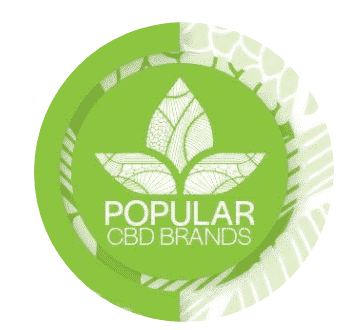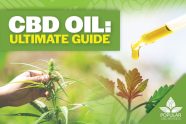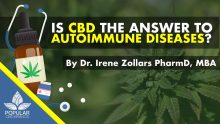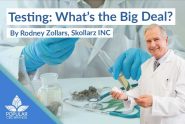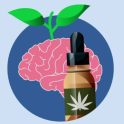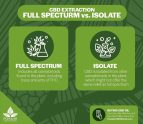Cannabidiol (CBD) is a non-psychoactive cannabinoid found in the cannabis plant. While the concentrations vary from one strain to another, it wasn’t until fairly recently that growers started isolating it for medicinal purposes.
What attracts people to CBD is the fact that it doesn’t cause the euphoric “high” that recreational users have always sought. This makes it a perfect choice for people who want to try medical marijuana, but still need to function normally.
However, this doesn’t mean that CBD is perfect for everyone. If you’re considering this option, let’s take a look at whether or not you’ll benefit from this cannabis breakthrough.
When Would I NOT Need CBD?
Like we said, CBD is non-psychoactive, so you’ll effectively remain sober. Instead, users report a “body high” that provides a sense of relaxation.
That being said, this means there are limits as to who it can help.
1Head Pain
A lot of medical cannabis users are lucky enough to have access to marijuana for migraine pain. If you’re one of the people who want migraine or general headache relief, then you should avoid CBD.
A study published in the U.S. National Library of Medicine “found no available information on the use of CBD as a treatment for headache. Nevertheless, CBD has shown efficacy for headache-related conditions…” In other words, CBD may not be effective on headaches themselves, but could alleviate them if they’re the result of some other larger neurological issue.
If your chronic headaches aren’t just a symptom of something bigger, then THC is your best choice.
Which Conditions Can CBD Treat?
This list is admittedly much longer – so extensive, in fact, that we couldn’t cover every single condition without writing a novel about it. But we’ll cover some of the major ones.
2Anxiety
If you’re considering medical cannabis for anxiety, CBD isn’t just your best choice, it should be your only choice.
Anyone who has smoked marijuana knows that being high can cause anxiety and paranoia. If your goal is to mitigate a neurological condition, you don’t want to use something that will trigger it.
Since CBD isn’t psychoactive, users can benefit from the relaxation without being in a mind-altered state. According to the National Institute on Drug Abuse, trials studies showed that CBD was effective in reducing chronic anxiety and anxiety brought on by post-traumatic stress disorder (PTSD).
3Epilepsy
Epilepsy is a very wide and misunderstood condition. Each case is unique, making treatment a huge challenge, even with today’s medical breakthroughs. While many patients respond well to conventional treatment through medication, others react poorly or not at all.
But in 2013, a solution through CBD made headlines. According to an article published in Scientific American, CBD often succeeds where prescription medicines fail.
When a Charlotte Figi, an eight-year-old girl was able to control her seizures with CBD, it prompted future studies into its role as an anticonvulsant. The condition in question was a disabling form of epilepsy called Dravet syndrome.
In 2016, several researchers conducted a 12 week study, using CBD as a treatment for 162 patients with Dravet syndrome. According to Scientific American, the median seizure reduction rate was 36.5%, while 2% of the subjects stopped having seizures altogether.
This rate is comparable to the success of conventional medication, without many of the severe side effects associated with these prescriptions.
4Chronic Pain
“Chronic pain” is a very wide term that refers to any kind of consistent physical pain. Many people are forced to take powerful narcotics, such as Oxycodone or Percocet. We all know how dangerous and addictive these substances can be.
CBD, however, seems to be an effective (and non-addictive) alternative. A 2008 study in the U.S. National Library of Medicine gathered data between 1980 and 2007, concluding that CBD made a huge difference when it came to pain management.
5Substance Abuse
From cigarettes to opioids – and everything in between – addiction’s reach is indisputable. People’s lives are ruined (and ended) on a daily basis because of drugs and alcohol.
Fortunately, many people see their problem and seek help, but recovery is an enormous challenge, even for the most devoted patient. But it appears that, even this area, CBD could make things easier for recovering addicts.
According to clinical psychologist Michael J. Breus, there’s “promising evidence” that CBD could help with an array of substance issues – and we’re not just referring to “illicit” drugs. If you happen to fall into the roughly 15% of Americans who smoke, CBD could help you reduce your cigarette intake by up to 40%.
Again, the health problems we’ve covered only scratch the surface of what CBD could potentially treat, or even cure. While studies are still hampered by the restrictions placed on cannabis, we can only hope that recent changes to the laws in many states and countries will lead to faster – and greater – discoveries.
Jacob Daniels
Latest posts by Jacob Daniels (see all)
- Best CBD Companies - September 8, 2020
- Can you Dab CBD? The Answers May Surprise You - May 19, 2020
- Savage CBD Review - May 10, 2020

